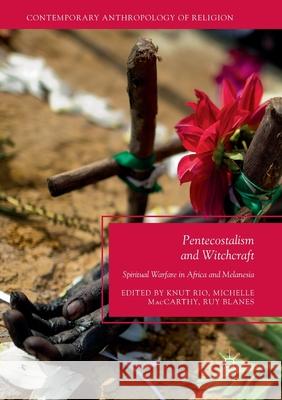Pentecostalism and Witchcraft: Spiritual Warfare in Africa and Melanesia » książka
topmenu
Pentecostalism and Witchcraft: Spiritual Warfare in Africa and Melanesia
ISBN-13: 9783319858197 / Angielski / Miękka / 2018 / 311 str.
Kategorie:
Kategorie BISAC:
Wydawca:
Palgrave MacMillan
Seria wydawnicza:
Język:
Angielski
ISBN-13:
9783319858197
Rok wydania:
2018
Wydanie:
Softcover Repri
Ilość stron:
311
Waga:
0.38 kg
Wymiary:
21.01 x 14.81 x 1.73
Oprawa:
Miękka
Wolumenów:
01
Dodatkowe informacje:
Wydanie ilustrowane











